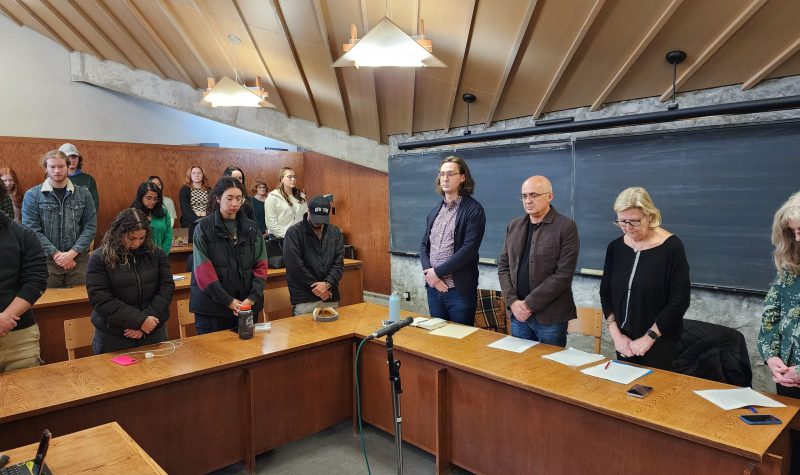On Nov. 7, three experts participated in a panel discussion about the conflict in Israel and Palestine, put on by Trent University’s Champlain College and department of Political Studies.
Over 75 people were in attendance, reaching capacity of the Trent University lecture hall where it took place. One of the organizers stated they had to turn away nearly 30 people at the door.
Dr. Hasmet Uluorda, chair of the department of Political Studies, was not surprised that the event was so well-attended.
“Trent was quiet. We have a responsibility as a community, as a community of learners and scholars, to be active and present in politics, and current events,” said Uluorda.
The panel discussion began with an introduction from Dr. Colleen O’Manique from the department of International Development Studies, who said that the purpose of this panel was to help “begin to understand” the conflicts happening with Israel and Palestinians. The discussion consisted of a 15-minute presentation from each of the three experts, followed by a period of questions from the attendants.
The first panelist to speak was Dr. Feyzi Baban from the department of International Development studies. His presentation focused on examining how international laws are being violated:
“Since Israel’s attack on Gaza, we see a terrible double standard. A terrible double standard on the part of our government, our leaders, the media, and the larger political establishment, to acknowledge what is really happening here.”
Baban shared public statements from Israeli politicians, and from non-English news outlets, to prove that Israel is committing war crimes and violating international law, like practicing collective punishment against Palestinians.
The second panelist to speak was Dr. Anne Meneley, from the department of Anthropology, who has experience researching in the West Bank studying Palestinian olive oil, and participating in protests for peace with people she called “aggro-activists.” Much of Meneley’s presentation applied her research into Palestinian culture and cuisine, to the events that have happened in recent weeks.
The final panelist was Dr. Liam Mitchell from the department of Cultural Studies, who focused on the benefits of alternative news outlets, like Twitter and other social medias, when receiving information about the events currently happening in Gaza and the West Bank. Mitchell provided specific examples of proven inaccuracies published by North American news organizations, like the Washington Post:
“Major headlines in Canada about Israeli victims smiling, and vulnerable, and violated, and these are contrasted with terror groups committed to suicide missions, terror rallies, and so on. This, of course, is framing. It is interpreting the news in a biased fashion, in part by emphasizing certain aspects of a conflict over others.”
Uluorda said that he expects there to be similar events in the future:
“This is ongoing. I think as a community, it means that we have to keep engaged, and by doing that, it means we have to have more of these [events].”
Listen to the story below:


